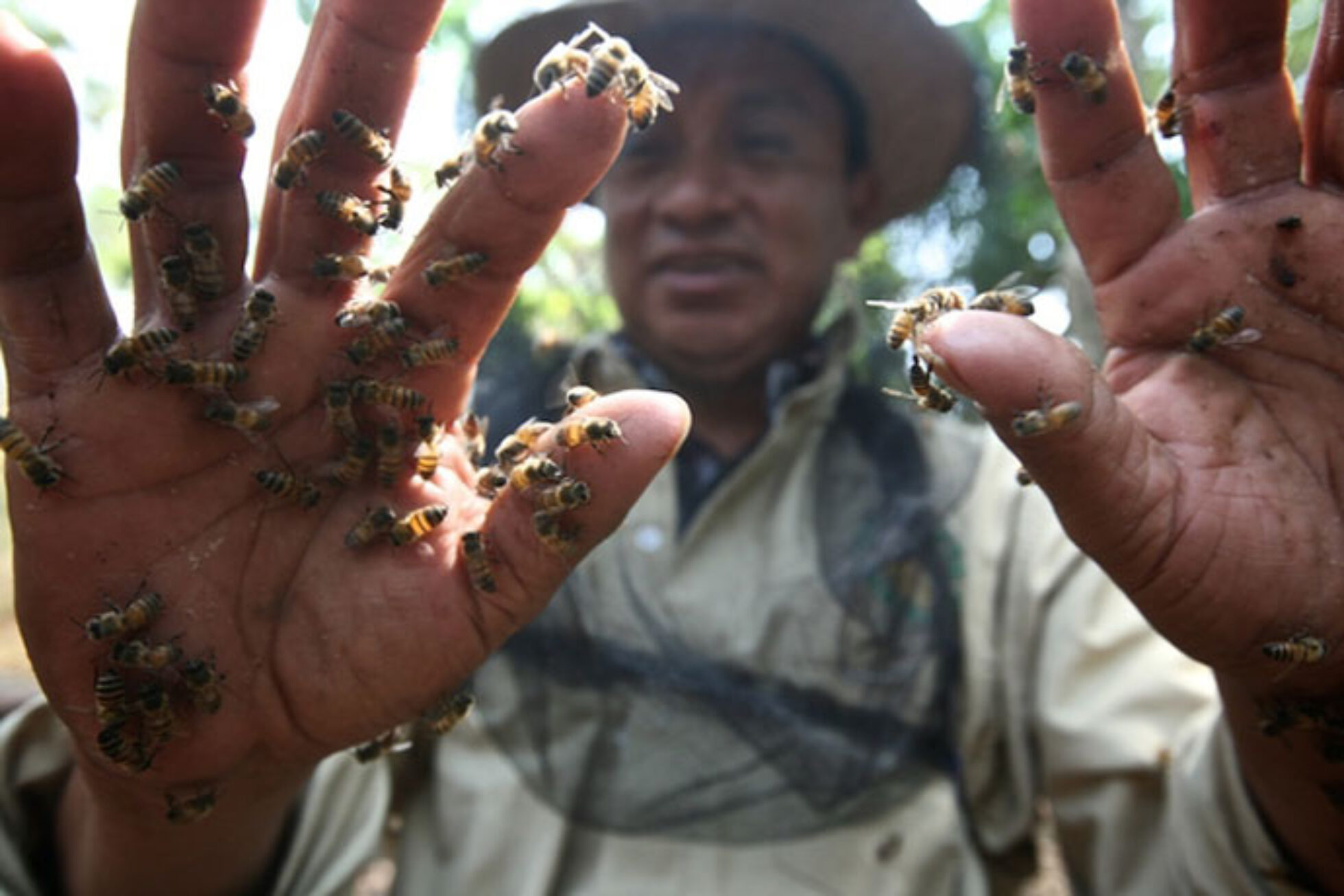Copiasuro: Maximizing Gains for Farmers and the Environment in Guatemala

When Alvaro Almengor assumed the position of general manager at Copiasuro, a cooperative of honey producers spread across the southwestern highlands of Guatemala, its 22 members had little more than 113 hives and dreams for a better life.
“They provided me with a decaying wooden barrel for a desk and a wooden box for beehives,” recalls Alvaro. “And when I asked for a calculator, they told me to count with my fingers.”
That was in 1993. Today the cooperative has swelled to more than 175 beekeepers exporting 300 tons of fair trade certified honey (15 percent of it organic) to international buyers paying premium prices. To put that into perspective, 300 tons of honey is enough to fill nearly one million 12-ounce jars.
Building Business Capacity to Help Farmers Thrive

Today, Alvaro does not have to count on his fingers. The cooperative now possesses the financial management systems and savvy required to manage its cash flow, input costs, and payments to producers, as well as an internal microcredit fund that finances its members’ purchases of new hives, beekeeping equipment, and basic household necessities.
Root Capital has accompanied Copiasuro’s growth since 2007, when the cooperative participated in our Porvenir Financiero (Financial Futures) training initiative, the pilot predecessor to our current Financial Advisory Services program. Our trainers introduced new accounting software that the cooperative now uses for purchases and sales, as well as credit and inventory management.
“It’s made decision-making easier,” says Alvaro, “enabling us to plan and to use the few resources that we have to their maximum benefit, both for our credit program and for the purchase of honey and for administrative costs.”
As a result, the cooperative was able to expand the amount of credit it offered its members, which in turn increased the volume of honey the cooperative produced. By the end of the training period in 2009, Copiasuro’s sales had doubled to $700,000.
Shortly after the training, Copiasuro received its first trade credit loan from Root Capital. Unusually heavy rainfall delayed nectar production and eventual shipments, leaving Copiasuro unable to pay its producers. Root Capital’s loan enabled the cooperative to meet its commitments, and its sales increased in 2010 by another 40 percent, to $1 million.
Under Alvaro’s leadership, producer income has increased by 35 percent, and the cooperative proudly reports that 100 percent of its members are able to send their children to school.
Benefits for the Entire Planet

Copiasuro’s vision for the future—beyond adding another 1,200 hives to its current 13,600—is “to be leaders in the field of organic honey production in order to improve the livelihoods of our producer members.” Already, the cooperative has a strong environmental track record. It is helping more of its members transition to organic production and is diversifying into cocoa cultivation, in part for the reforestation and soil conservation benefits, but also as a hedge against climate change.
The changing climate, as well as a rise in human-led deforestation, means that many forests that act as natural habitats for bees are disappearing. Recognizing how a healthy environment is tied directly to farmer livelihoods, Copiasuro has launched reforestation projects all over southwestern Guatemala—forests that its farmers pollinate using their own bees.
Root Capital’s ongoing engagement with Copiasuro is a powerful example of how our integrated model of training plus credit grows rural prosperity for smallholder farmers, and can have positive benefits for the entire ecosystem.
Photos © Sean Hawkey. Information in this client profile is up-to-date as of publishing time.